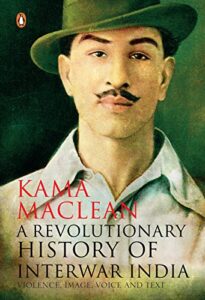India Wins Freedom by Maulana Abul Kalam Azad offers a rare, candid glimpse into the final years of India’s independence movement. Written in 1957, with portions sealed until 1988, the memoir reveals behind-the-scenes political drama, ideological clashes, and untold truths about key leaders and events. A must-read for history lovers, this book challenges popular narratives and deepens our understanding of the freedom struggle’s last decade.
Why I Picked This Book
I have always been deeply fascinated by history—particularly the story of India’s freedom struggle. Over the years, I’ve read several books documenting the nation’s long and complex fight for independence, along with the challenges that came with it. When I came across India Wins Freedom by Maulana Abul Kalam Azad, I knew it was a must-read. Maulana Azad was not only a towering figure in the freedom movement but also someone whose personal experiences gave him an insider’s perspective on India’s political journey to independence.
The Book
A Controversial Publication
First published in 1957, India Wins Freedom is Maulana Azad’s autobiographical account of the Indian independence movement. However, certain portions were intentionally sealed for three decades. Azad withheld these candid sections—containing unfiltered opinions on political hypocrisy and the mindset of his contemporaries—to avoid immediate controversy. The complete version was only made public in 1988, revealing a more unvarnished truth about the independence era.
A First-Hand View of the Freedom Struggle
The memoir begins around 1935 and chronicles Azad’s tenure as President of the Indian National Congress. He details significant political decisions taken under his leadership and offers a unique, insider’s perspective on the Congress’s inner workings. The timeline spans from the outbreak of World War II to India’s independence, showing how global developments shaped the national movement.
Key Historical Events and Honest Opinions
Azad provides detailed accounts of the failed Cripps Mission, the Quit India Movement, the general elections, the rising demand for partition, and the roles of leaders such as Muhammad Ali Jinnah. He openly records his disagreements with Sardar Patel, Mahatma Gandhi, and Jawaharlal Nehru—views so forthright they were once deemed too sensitive for public release. The narrative also covers the formation of the interim government and the painful realities of partition.
Our Verdict
India Wins Freedom is an essential read for history enthusiasts—especially those curious about the political complexities of India’s final decade before independence. Azad’s candid recollections add depth to well-known events, challenge established narratives, and highlight the compromises, conflicts, and courage that defined this era.
By the end of the book, readers will not only gain a richer understanding of India’s freedom struggle but also a deeper appreciation for the integrity and conviction it took to document it honestly. This is not just a memoir—it is a valuable piece of historical testimony.
About the Author
Maulana Abul Kalam Azad was an influential political leader, scholar, and one of the most prominent figures of India’s independence movement. He served as independent India’s first Minister of Education and is credited with laying the foundation for the nation’s modern educational system, including the establishment of the IITs.
Azad was also the youngest ever President of the Indian National Congress and was posthumously awarded the Bharat Ratna for his immense contributions to the nation.


